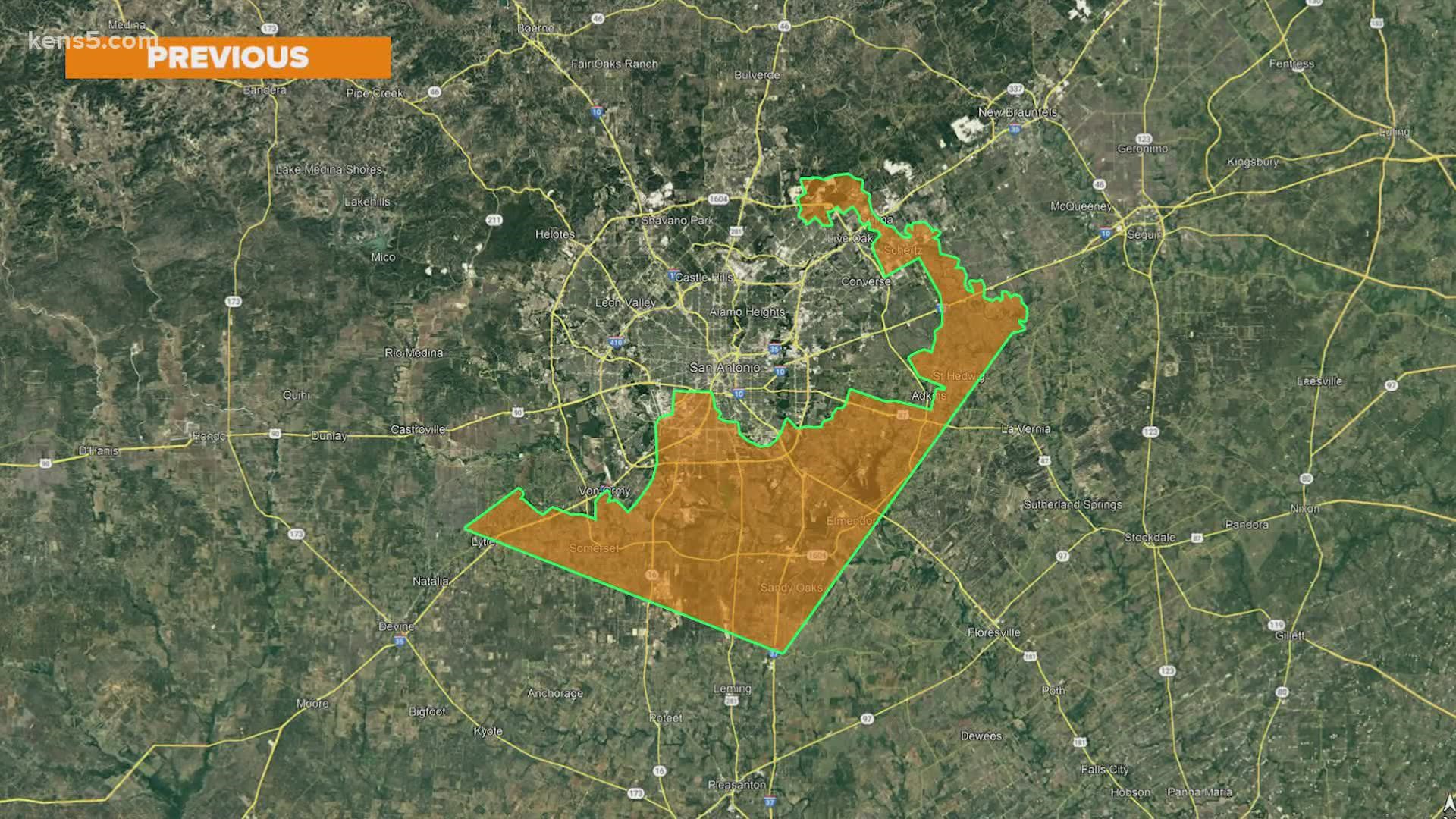SAN ANTONIO — The U.S. Department of Justice filed suit Monday against Texas, alleging state lawmakers drew election maps that discriminate against Latino and Black voters.
U.S. Census data indicates minorities account for about 95 percent of Texas's growth over the last decade. In that time frame, the Lone Star State population has increased by roughly 4 million residents.
"Our investigation determined that Texas's redistricting plans will dilute increased minority voting strength that should've developed from these significant demographic shifts," associate Attorney General Vanita Gupta said Monday.
The DOJ's case alleges racial discrimination in three San Antonio area districts, including state House District 118, state House District 31, and U.S. House District 23.
Traditionally, most registered voters in HD118 have had Spanish surnames.
Under the newly-enacted maps, lawmakers slashed the percentage of registered voters with Spanish last names in HD118 from 59.5 percent to 47.6 percent.
Voting-age Latino citizens now comprise 57.5 percent of the district, compared to 68.1 percent under the prior configuration.
Lawmakers cut Latino influence in the district by removing densely-populated neighborhoods inside Loop 410, replacing those voters with people who live around Randolph Air Force Base and in southwestern Bexar County.
The feds allege Texas legislators made similar moves to bolster white control in other districts with growing minority populations.
"The justice department and these other groups allege that voters of color, specifically Latinos, are not being given expanded ability to send their candidates of choice to the halls of power in Austin and Washington, D.C.," said Quorum Report editor Scott Braddock, a political insider at the Texas capitol.
A federal judge in El Paso will decide whether the Texas maps are disproportionately white. If the maps do violate the Voting Rights Act, Texas would need new districts.
"The question is who gets to draw them," Braddock said. "Is it the legislature or is it the courts? In some cases, the courts have taken it upon themselves to re-draw at least parts of those maps if they found them discriminatory."
Any decision could be appealed up to the U.S. Supreme Court. If the issue is not resolved soon, Texas may have to delay its primary elections.
Early voting begins in February.
Braddock noted that a redistricting challenge delayed the 2012 primary, elevating Ted Cruz's campaign for U.S. Senate. In an upset, Cruz defeated sitting Lt. Gov. David Dewhurst in the republican primary.
Because COVID-19 delayed 2020 U.S. Census results, lawmakers crafted their new district maps later than usual. Candidates scrambled to determine which new districts they could run in.
"Usually, you don't have the redistricting process wrap up right before the filing period," Braddock said, noting that any legal holdup with the newly-drawn maps could produce unusual electoral circumstances.
Texas may re-open its filing process and allow more candidates to run, for example. Braddock predicts a wave of residency challenges, where candidates contest whether their opponents are running in the appropriate districts.
In theory, lawmakers could re-do the election maps again in 2023. The Texas constitution calls for the legislature to redraw districts during the first regular session after the census.
Because of the COVID-19 delay, the first regularly-scheduled legislative session after the Census is still more than one year away.

